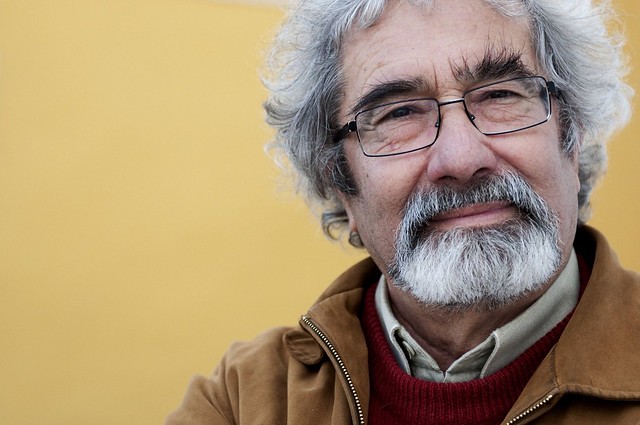Cláudio Torres
The archaeologist Cláudio Torres has dedicated his entire life to revealing the legacy of Islamic heritage in Portugal. As an educator in Medieval History at the University of Lisbon, Torres noted that though there was a significant Islamic presence in Portugal for a period of 500 years, this was not duly reflected in historical study of the time. This led to his research in Mértola, a small village in the southeast of Portugal, where he established the Mértola Archaeological Site (CAM).
The old city of Martulah (or Mértola) had been an important city in Antiquity and the Middle Ages, but its status later declined and was largely forgotten. Excavations initiated by Cláudio Torres in 1978 uncovered a wealth of discoveries which have reshaped understanding of the site for the contemporary world and revealed important links across the Mediterranean. Among the discoveries were a necropolis dating from the Late Middle Ages, an intricate Islamic district and an impressive Paleo-Christian religious compound, along with two 6th-century baptisteries and mosaics with strong Byzantine influences.
These fascinating excavations proved to be the catalyst for a 45year period of research. Museum exhibits were developed, dozens of books and catalogues were published, and a journal in medieval archaeology was launched, among other initiatives.
Mértola has become a regular destination for academics and researchers. It has hosted international conferences and many researchers visit the village and its archaeological site, especially from Tunisia and Morocco. Several generations of archaeologists, historians, anthropologists and curators-restorers, among others, have trained there.
The research centre and extensive library created by Cláudio Torres in Mértola includes a research unit run in collaboration with the Universities of Coimbra and the Algarve. The Islamic Festival in Mértola, held every two years and celebrating its 11th edition in 2023, has strengthened links with other countries that share Islamic history and culture. The small village in the Alentejo region, with little more than 1,000 inhabitants, has attracted thousands of visitors each year, resulting in a boost in the tourism economy. A renewed pride and sense of stewardship has also been encouraged among the local community. Among his achievements, Cláudio Torres’ was also involved in the creation of the Guadiana Valley Natural Park, of which he was the first Director.
“As a bridge builder between Islamic and Christian cultures, Cláudio Torres has played a pivotal role in fostering the appreciation and conservation of Islamic heritage in Portugal, which has immense importance for Europe’s cultural heritage as a whole and which deserves to be acknowledged and cherished. He has gone beyond conventional archaeological practices and actively involved the local community in safeguarding and celebrating their shared heritage. He has thus become a source of inspiration for many”, the Awards’ Jury stated.
“Cláudio Torres’ remarkable achievement of having the Low Guadiana Valley listed as a national park highlights his holistic vision linking archaeology, natural and cultural heritage and local development. His support for teamwork and collaboration has been instrumental in his success, bringing together professionals and creating a cohesive team that remains rooted in Mértola” the Jury concluded.
More information
Contact: Andreia Rodrigues | geral@camertola.pt | claudiotorres.camertola.pt



